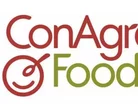ConAgra announces plans to split, introducing new entity Lamb Weston

ConAgra is undergoing a major change. Following in the footsteps of similar businesses like Kraft Foods and Sara Lee Corporation, the food manufacturing giant announced today that it plans to split into two distinct entities.
The first entity created by the split will be ConAgra Brands, which will encompass most of the original ConAgra’s Consumer Goods portfolio—this includes brands like Chef Boyardee, Healthy Choice, Hunt’s, and Slim Jim among others. According to ConAgra, this segment alone generated $7.2 billion in revenue over the 2015 fiscal year.
RELATED CONTENT: ConAgra Foods Acquires TaiMei Potato Industry Ltd and Primes for International Growth
Adding to this, ConAgra Brands will also contain several private label operations as well as Commercial Food brands like Spicetec Flavors & Seasonings and JM Swank, produced for the foodservice market. Current ConAgra CEO Sean Connolly will continue to lead ConAgra Brands.
The other half of the split will be Lamb Weston, a brand new entity with a portfolio specializing in frozen potato, sweet potato, vegetable and appetizer products. This new entity, which has not yet announced a management team, generated $2.9 billion in 2015 as part of ConAgra and is looking to joint ventures with global players like Meijer to build a global reputation in this new form.
“The decision to separate into two pure-play companies reflects our ongoing commitment to implementing bold changes in order to deliver sustainable growth and enhanced shareholder value,” said Sean Connolly, president and chief executive officer, ConAgra Foods, in a statement from the company. “We carefully considered a variety of strategic alternatives, and believe that the separation of our Lamb Weston specialty potato business from our consumer brands business is the best way to drive shareholder value.”
RELATED CONTENT: The Top Ten Food Processing Brands
As Connolly explains, the split will benefit both the business and their shareholders, by give each entity a greater opportunity to do what they do best and grow within their sectors.
“The separation will enable each company to sharpen its strategic focus and provide flexibility to capitalize on the unique growth opportunities in its respective market,” he said. “Shareholders will gain direct exposure to more focused consumer and commercial foods businesses, each with distinct customer bases and investment profiles. We are confident that this separation will best position each company to compete and win while creating compelling long-term value for shareholders and delivering benefits to employees, customers and other key stakeholders.”
- Conagra Brands acquires Pinnacle Foods in $10.9bn dealFood
- Conagra Brands annoucnes partnership with Taco Bell for new sunflower seed productFood
- Conagra and Kellogg have invested $34mn in a start-up incubator in ChicagoFood
- How is Denny’s Finding Success in Millennial-Geared Spinoff The Den?Franchising



